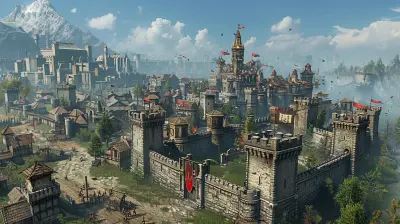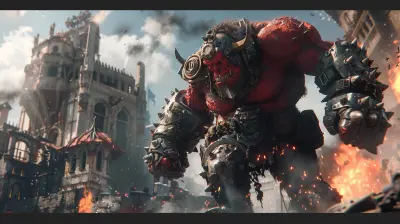How NPCs Carry the Weight of Worldbuilding
24 September 2025
Picture this: you’re walking through a bustling medieval town in your favorite RPG. Cobblestone paths crunch beneath your boots, smoke curls from chimneys, and a blacksmith hammers away at his anvil. You stop to chat with a baker who complains about rising flour prices. Sounds like background noise, right?
But here’s the secret ingredient—it’s not just ambiance. That baker, the blacksmith, the guard yawning at the gate… they’re Non-Playable Characters (NPCs), and they’re doing more than filling space. They’re carrying the weight of the game's worldbuilding.
In this article, we’re cracking open the treasure chest of how NPCs aren't just extras on the stage—they're the glue holding the entire game world together. Ready to dive in?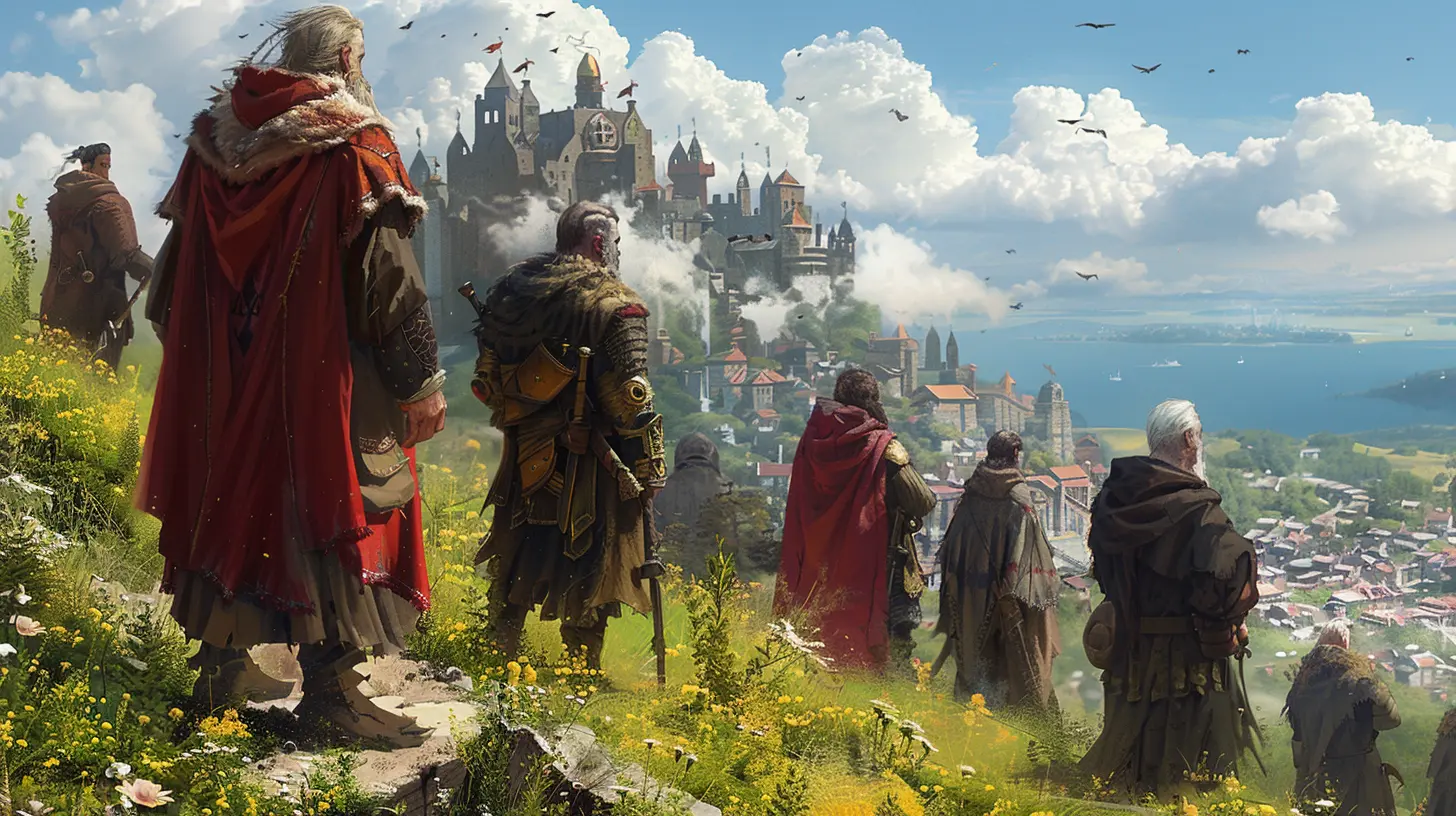
What Exactly Are NPCs?
Let’s strip it back real quick for the uninitiated. NPCs are characters in games that aren’t controlled by players. They could be friendly, hostile, or neutral. Sometimes they offer you quests, sell you armor, or just mutter about the weather. But beneath all that, they're storytellers in disguise.Think of them as the chorus in a Greek play—commenting, hinting, fleshing out the world around you while staying “off-center.” Their purpose? To make the game world feel lived-in.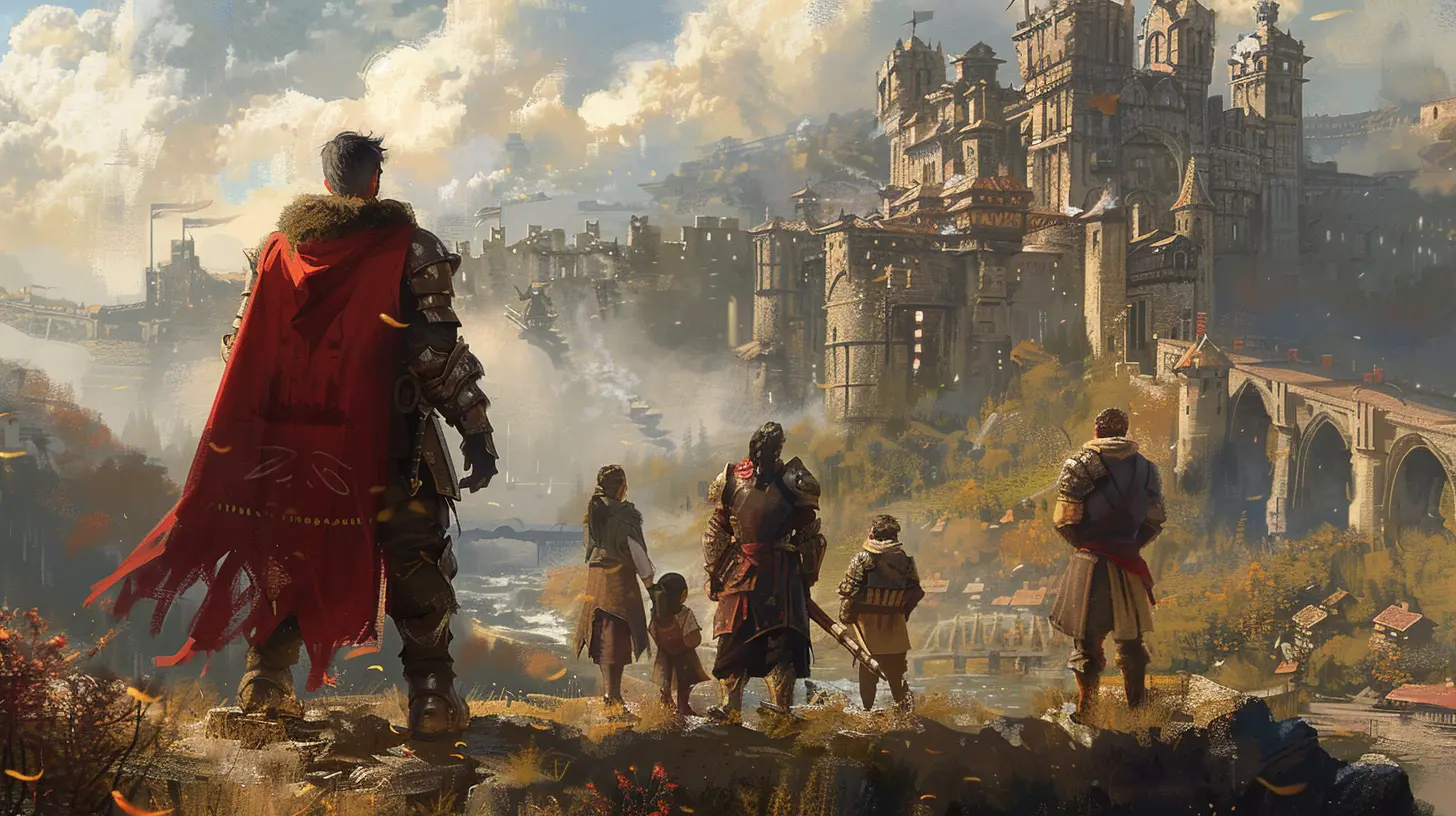
More Than Quest Machines: What NPCs Really Do
Too often, gamers brush off NPCs as quest-givers or walking tutorials. But writers and developers know better. When crafted right, NPCs:- Reinforce the game’s lore
- Reflect shifting world states
- Convey mood and tone
- Ground you in the culture of the world
- Create emotional resonance
They're like the veins of a world—every encounter, every reaction, pumping life into the game’s heart.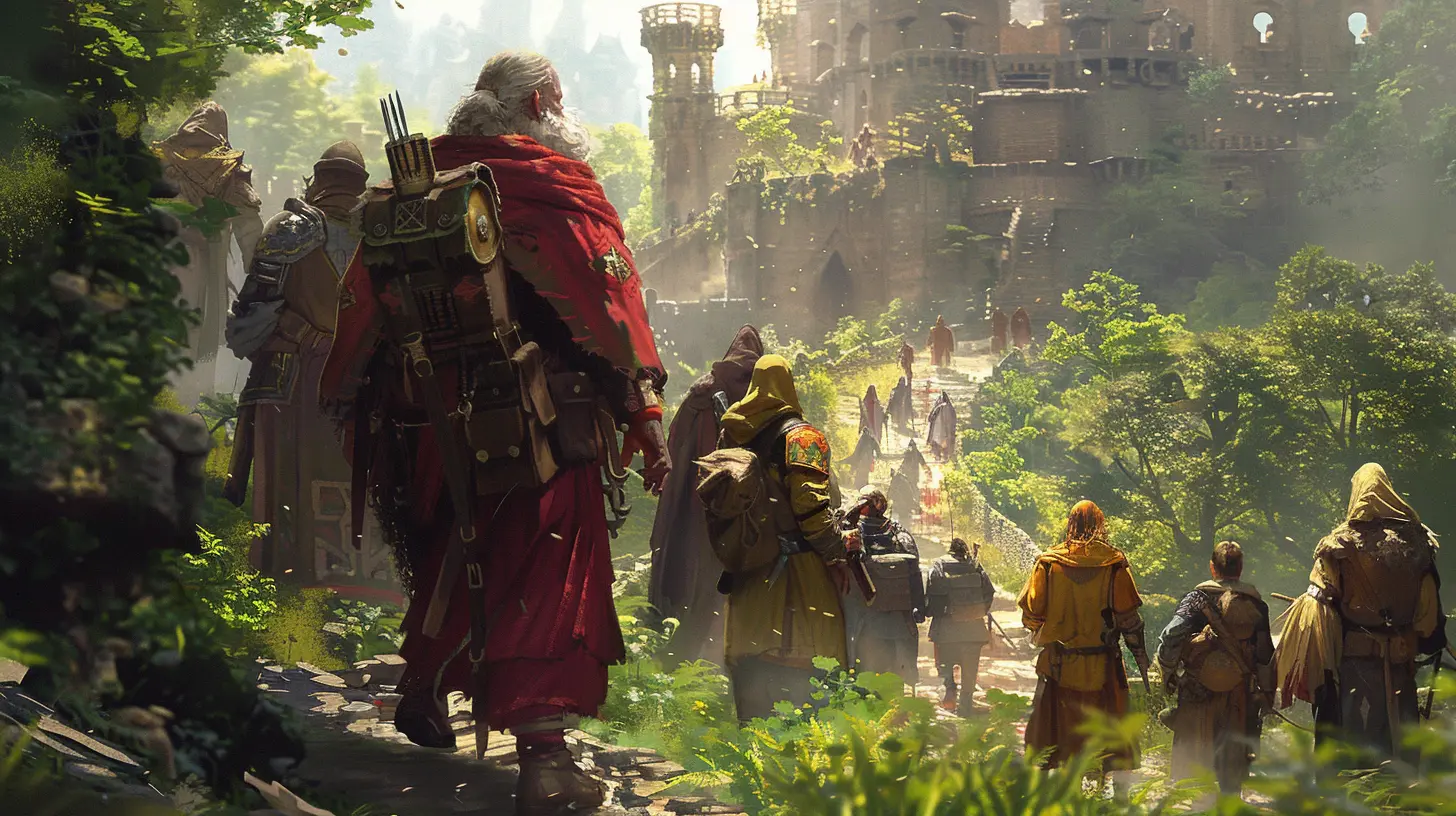
Layering Lore Through Conversations
Ever played a game where the plot is okay, but the vibe is what sticks with you? That vibe? It often comes from NPC dialogue.Let’s say you’re playing a dystopian cyberpunk RPG. You walk past a street vendor and he mutters, “Another blackout… Must be them corpo freaks rationing power again.” Boom. You’ve just learned something about the political climate, the economic situation, and the everyday struggles—without a single cutscene.
These offhand remarks, idle conversations, and overheard arguments weave a tapestry of lore that’s way more effective than reading a ten-page codex entry.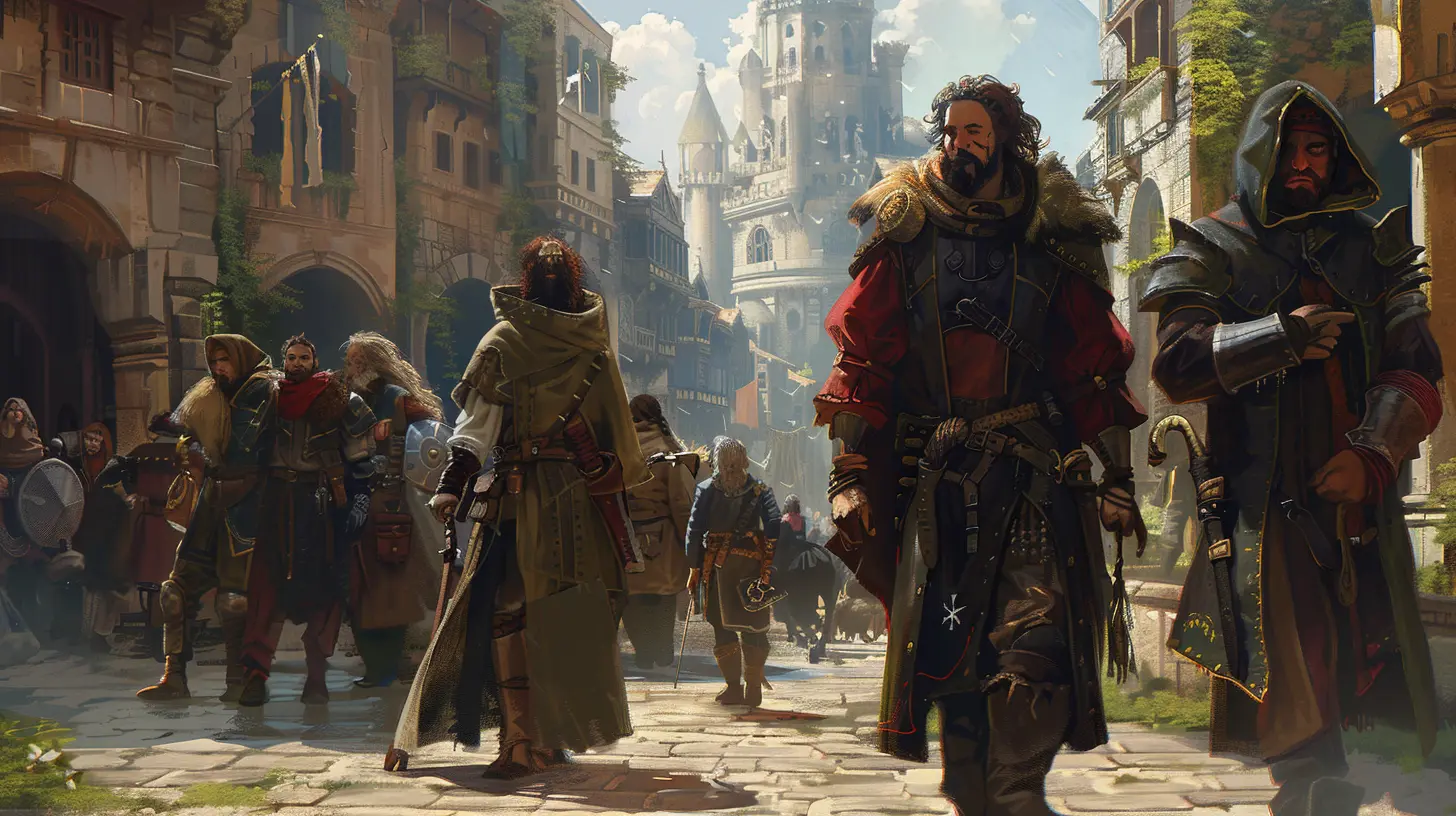
Environmental Storytelling: NPCs as Story Anchors
Game environments are stunning, sure. But without context, even the prettiest landscapes fall flat. This is where NPCs really shine—they provide narrative scaffolding for those pretty pixels.Take The Elder Scrolls V: Skyrim for example. A ruined village might be visually striking, but it’s the NPC hiding in a nearby cave, whispering about a dragon attack, that gives the place history and emotion. She’s more than just a survivor—she’s the story’s anchor.
The Butterfly Effect of NPC Reactions
One of the coolest things? NPCs that change based on your actions.You steal from a merchant? Next time you visit, he scowls and swears he’s watching you. You save a town from bandits? Suddenly, the townspeople greet you with respect. It’s not just about karma points—it’s about creating emergent storytelling.
A world where NPCs react and remember feels more alive. Your actions have ripples, and NPCs are the water you’re throwing stones into.
Faction Ties and Cultural Cues
Games like Fallout: New Vegas or The Witcher 3 masterfully use NPCs to reflect different cultures and factions. You’ll notice it in their dialects, the slang they use, what they wear, what they fear, who they trust.For instance, an NPC from a desert tribe might value honor and hospitality, while a city-dweller speaks in clipped, business-first tones. These differences don’t just add flavor—they build cultural authenticity.
NPCs are your informal cultural guides. They're like locals giving you the lowdown on their turf.
Mystery Through Silence
Here’s an underrated trick: some of the most powerful NPCs are the quiet ones. A hooded figure that never speaks but always shows up? Now that’s creepy—and it makes you ask questions.Sometimes what’s not said is as important as what is. A non-responsive NPC in a war zone, shell-shocked and staring into the distance, tells you everything you need to know. Their silence is deafening. It’s storytelling through implication.
NPCs and Emotional Storytelling
Let’s talk feels.NPCs aren’t just lore machines—they’re emotional catalysts. Remember that one NPC that made you cry? Or the sidekick who stayed loyal until the end? Those characters deepen your investment.
Games like Red Dead Redemption 2 and Mass Effect use NPCs to forge emotional connections. They’re not just part of the scenery—they’re companions, mentors, rivals, lovers, enemies. When they die, betray you, or even just offer sincere gratitude, it hits home.
Why? Because they’ve been helping carry the emotional arc of the world all along.
The Illusion of Agency
Here’s where things get philosophical. NPCs often give players the illusion of choice, even if the outcomes are limited.When an NPC says, “Please, save my daughter,” and you’re given three ways to respond—even if all roads lead to the same quest—it still feels personal. That feeling of agency is gold in game design. It lets you believe you’re shaping the story, even if the rails are hidden.
Props in a Living Stage
You might think of NPCs as background actors. But they’re more like props in a living theater. They move, they speak, they interact. And their presence says, “This world exists even when you’re not looking.”They’re gossiping in alleys, praying in temples, sweeping shops. They’re going about their lives, and you just happen to walk through. This sense of a world continuing without you? That’s priceless. That’s immersion.
Procedural NPCs vs Hand-Crafted Characters
Let’s get nerdy for a second.Some games, like No Man’s Sky or Dwarf Fortress, lean on procedural generation—NPCs built by algorithms. These millions of digital denizens may lack depth, but collectively, they add volume and believable chaos.
On the flip side, you’ve got hand-crafted NPCs—deliberately written, voiced, animated. Fewer in number, but rich in detail and intention. Think of them as the main actors in a movie full of extras.
Both have their place. But when it comes to meaningful worldbuilding, hand-crafted NPCs often shoulder more narrative weight.
When NPCs Are the World
Ever played a game where the entire story revolved around just one NPC? Think Bioshock's Atlas, or Portal's GLaDOS.These characters are the story. Without them, the world crumbles. They guide, deceive, threaten, plead. Sometimes they are the only human contact you have in a desolate setting—and that makes their words and actions profound.
These NPCs aren’t part of the world. They are the world.
NPCs as Mirrors for the Player
Here’s a little psychology twist: NPCs often reflect who you are becoming in the game.They react to your choices, praise your virtues, call out your vices. They cheer for your heroism or shrink from your tyranny. Through them, you see yourself.
NPCs are like a talking mirror in a fantasy forest—they show you what kind of legend you're leaving behind.
Wrapping It Up: NPCs Hold the Soul of the World
We often focus on mechanics, graphics, and plot—but it’s the NPCs that breathe life into a game. They’re the unsung heroes of worldbuilding, crafting a world that feels real, textured, and bursting with stories.Think of them as the invisible hands holding up the stage. Without them, the world would feel hollow, like a movie set after hours. But with them? Every corner holds a story, every road leads to a whisper of mystery, and every encounter matters.
So next time you pass by an old man muttering to himself in an RPG… stop and listen. You might not just find a side quest—you might find the soul of the game itself.
all images in this post were generated using AI tools
Category:
Game LoreAuthor:

Luke Baker
Discussion
rate this article
1 comments
Astranor Patterson
NPCs are the unsung heroes of worldbuilding, enriching our adventures and immersing us in vibrant narratives. Their stories and quirks breathe life into every game, making our journeys unforgettable!
October 9, 2025 at 2:58 PM

Luke Baker
Absolutely! NPCs add depth and richness to storytelling, turning a game world into a living, breathing space full of memorable experiences.

